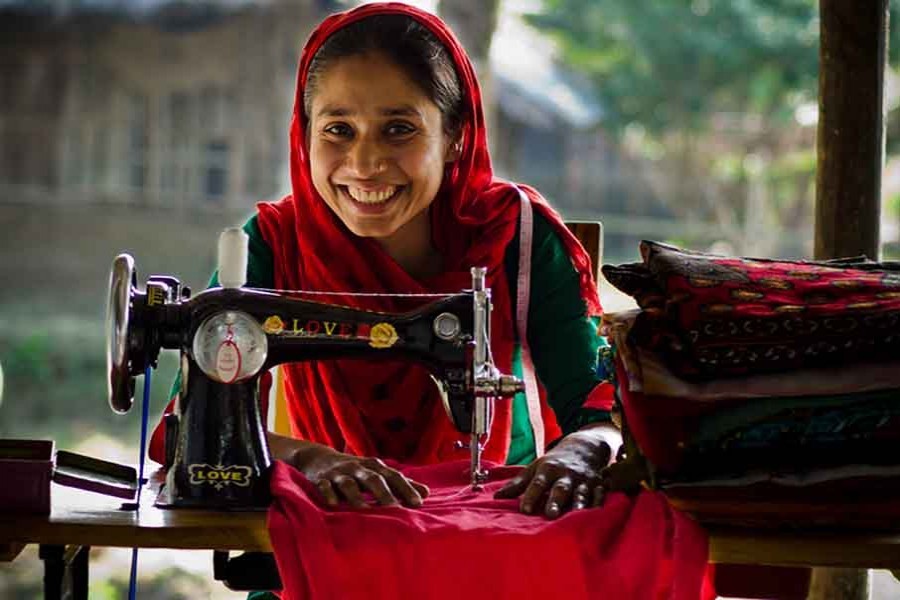The webinar on the appraisal of Bangladeshi women's place in the context of their wielding power in the social context was no extraordinary event. The country has been watching such brainstorming since long. But the virtual colloquium held online on September 28 emerged unique in consideration of its attempts to touch upon some vital aspects. These issues are normally shoved into peripheries despite not being sufficiently addressed, leave alone in-depth discussion on the need for a louder voice of women i.e. arming them with many vital prerequisites. One of them is their meaningful participation in decision-making in the economic sector. The need for such an open discussion with the participation of leaders involved with women's all-round uplift always deserve great urgency with the increased budgetary allocations for women. The webinar, titled 'An Analysis of Gender-Sensitive Budgeting: Bangladesh Perspective', was jointly organised by the South Asian Network on Economic Modelling (SANEM) and the Bangladesh Mahila Parishad. The Parishad president Dr Fauzia Moslem chaired the event with the SANEM Executive Director Dr Selim Raihan making the opening remarks.
The webinar has assumed relevance, thanks to the fact that participation of women in economic decision-making is still poor and nominal in the country. It has turned out to be the fact that despite women's substantial increase in employment in the last one decade, the voice of women in decision-making in economic affairs, especially those involving them, remained faint so far, the speakers noted. Bangladesh could have told a different story --- especially in the context of the recent progresses made by spirited women, especially the young, in various socio-economic and national sectors. True, the recent corona pandemic and its dampening short-, middle- and long-term fallouts have stood in the way of materialisation of a number of major goals related to women's uplift. The unexpectedly grim turn of the situation notwithstanding, the country somehow managed to remain steadfast on the journey to its projected goal. Theoretically, women cannot expect to get short shrift from the male-dominated policymakers due to the low-intensity pandemic outbreak.
As expected, the webinar, in accordance with its original agenda, stressed the projected impacts of gender budgeting on the reduction of gender inequality. This is due to the fact that the stakeholders in general including the government and 'political parties' do not fail to understand the importance of female empowerment. Outwardly, signs of the initial functionality of this national objective could be seen in all sectors, women's pronounced presence in economic areas in particular. Moreover, the all-important documents like the five-year plan or the national budget acknowledge the importance of women's empowerment. The webinar's speakers, as had been expected, wanted to see the state documents' acknowledgement of the need for women's proactive role in functions like economic decision-making. But reality speaks otherwise, with the pragmatic actions in this regard remaining unclear.
SANEM Executive Director Dr Selim Raihan welcomed the comprehensive outline of the gender budget, underscoring the need for making proper appraisal of its implementation and identifying the hindrances. Given the glaring absence of women's voice in the nation's economic decision-making, what is needed the most is greater coordination among the ministries in order to improve institutional capacity, strengthening the power-wielding range of the Ministry of Women and Children Affairs as the lead ministry. It was heartening to note the president of the BWCCI Selima Ahmad MP's highlighting of the importance of increased gender allocations for women at the country's grassroots level. These largely out-of-focus women always remain voiceless.


